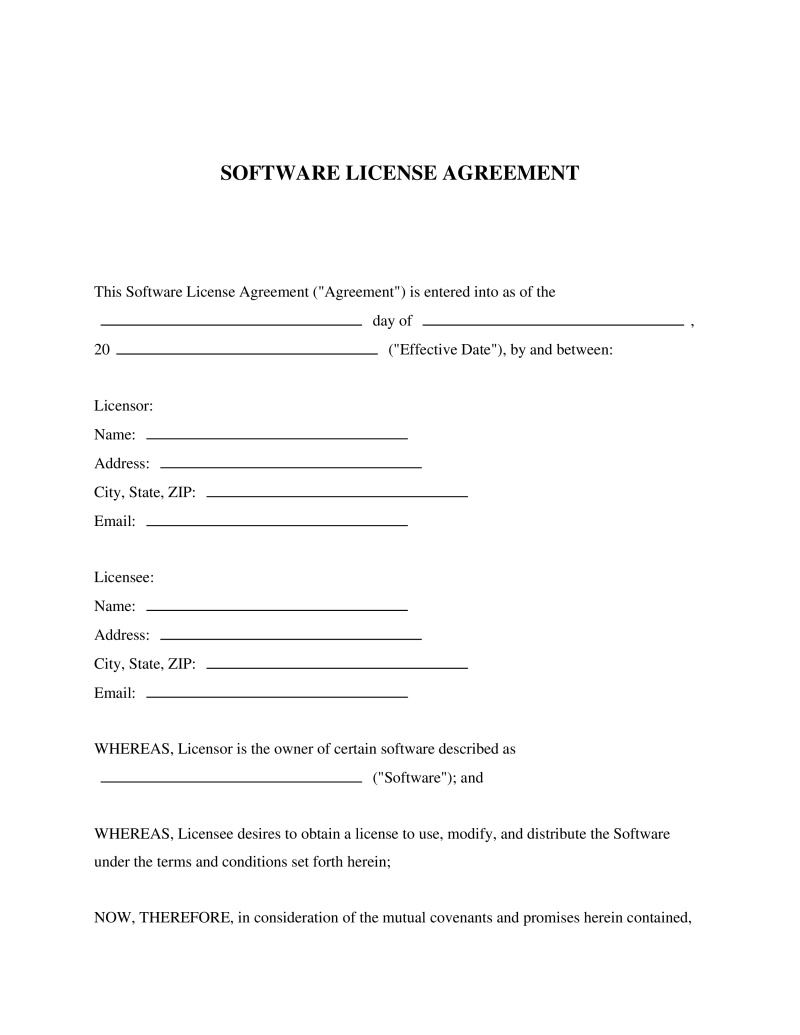What is a Software License Agreement?
A Software License Agreement, also known as a Proprietary Software License, is a legal document that outlines the rules, rights, and restrictions between the software provider and the user. The agreement protects the intellectual property of the software developer while granting the user license to use the software under specified conditions.
Key Features
When You Might Need a Software License Agreement
A Software License Agreement is crucial when a software developer or company wants to sell or license their software to a user or another company. It's especially important when the software is proprietary, and the owner wants to limit how it's used to protect their intellectual property rights. Some common situations requiring this form include:
- When software is being provided for commercial use
- If proprietary software is being licensed out to multiple users
- When software is being adapted or modified for a specific use
- If a business wants to dictate how their software can be used to prevent misuse
- When a software provider wants to establish terms for license termination
Ideal Users of a Software License Agreement
Software License Agreements are used by a range of parties, including individual software developers, software companies, and businesses that use software. This agreement is particularly beneficial for:
- Software developers who want to protect their intellectual property
- Businesses that provide software as a service (SaaS)
- Companies that customize software for clients
- Organizations that use software for commercial or internal use
Pros & Cons
Pros
Cons
Common Uses
About this document
A Software License Agreement is a legal contract granting permission to use software under specified conditions and restrictions.
This document utilizes our advanced PassTheBar AI technology, ensuring bar-exam precision and comprehensive legal coverage.
This document is designed to comply with the laws of all 50 states.
Community Discussion
Share your experience and help others
Legal Notice: Comments are personal opinions and do not constitute legal advice. Always consult a qualified attorney for matters specific to your situation.

Comments (0)
Leave a Comment
No comments yet. Be the first to comment!